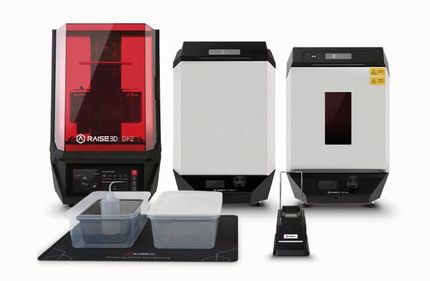To use all functions of this page, please activate cookies in your browser.
my.chemeurope.com
With an accout for my.chemeurope.com you can always see everything at a glance – and you can configure your own website and individual newsletter.
- My watch list
- My saved searches
- My saved topics
- My newsletter
Myriad GeneticsMyriad Genetics is a leading biopharmaceutical company focused on understanding the relationship between genes, proteins and human diseases in order to develop the next generation of therapeutic and molecular diagnostic products. Through proprietary technologies, they are positioned to identify important disease genes, the proteins they produce, and the biological pathways in which they are involved to better understand the underlying molecular basis for the cause of human disease. Identifying these genes, proteins, and pathways could enable Myriad to develop novel therapeutic and molecular diagnostic products. Product highlightCurrentToday Myriad has a range of cancer predictive medicine products and develop therapeutics that include drug candidates in the areas of Alzheimer's disease and cancer. Individuals with a history of cancer in their family use these products to determine their own risk of developing cancer. Risk can be managed and cancer may be averted through appropriate precautions. If the disease is diagnosed early, it may be treated more successfully through a variety of proven options. HistoryIn 1980, DNA dignitaries hosted a gathering in Cold Spring Laboratory in New York called “The Molecular Biology of Homo Sapiens.” Nobelaureate Dr. Walter Gilbert proposed a “blind sequencing” project with private financing. Despite his estimate of $3 billion to map the human genome, Gilbert was convinced of the opportunity.[1] Unable to raise enough venture money for his Genome Corp. in the market conditions of the mid-80s, Dr. Gilbert co-founded Myriad, along with Kevin Kimberlin and Mark Skolnick, in 1992. At that time there was a new wave of genome startups, supported by venture capital, public stock offerings, or private corporate funds launched. Craig Venter announced his intention to form The Institute for Genomic Research (TIGR). TIGR was then the largest private investment, and its work was linked through agreements on intellectual property rights to a larger for-profit unit, Human Genome Sciences, Inc. Human Genome Sciences, Inc., in turn, announced an agreement with Smith-Kline-Beecham in May 1993. Another company, Incyte Pharmaceuticals, began a major program in EST sequencing during 1992 and into 1993. Both Incyte and Human Genome Sciences made initial public stock offerings in late 1993. Several private firms pursued instrumentation, including Genomyx (a spinoff of Genentech), Applied Biosystems (by now acquired by Perkin-Elmer) and others. Still others, such as Gilbert’s Myriad Genetics; Collaborative Research, Inc.; Mercator Pharmaceuticals; Millennium Pharmaceuticals; and Sequana Therapeutics, focused on locating specific genes through mapping techniques, with an eye toward drug discovery. References
|
| This article is licensed under the GNU Free Documentation License. It uses material from the Wikipedia article "Myriad_Genetics". A list of authors is available in Wikipedia. |







